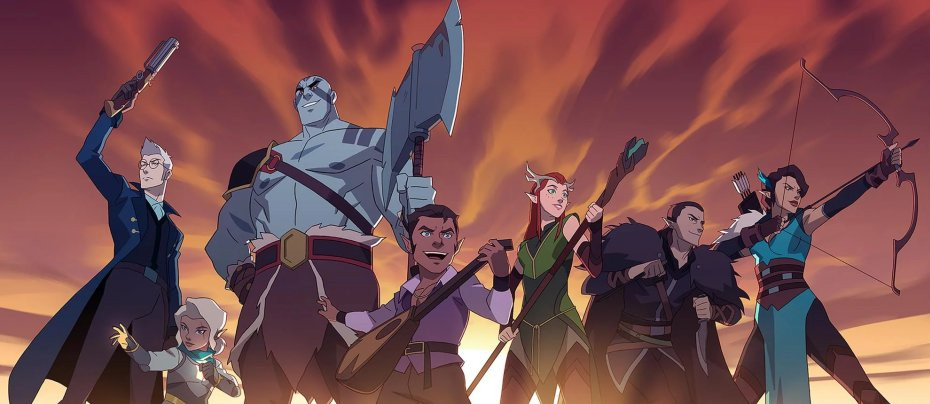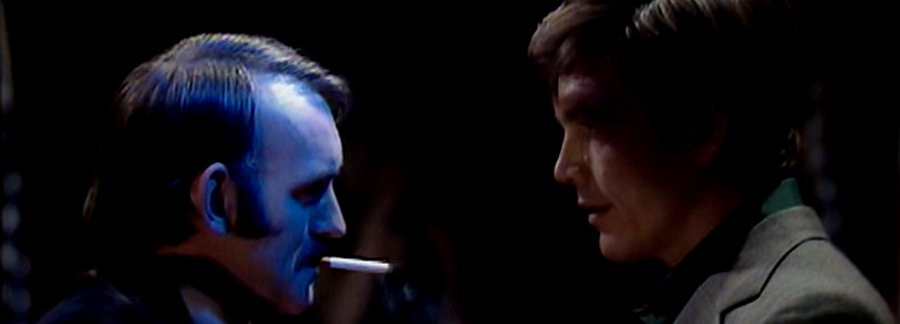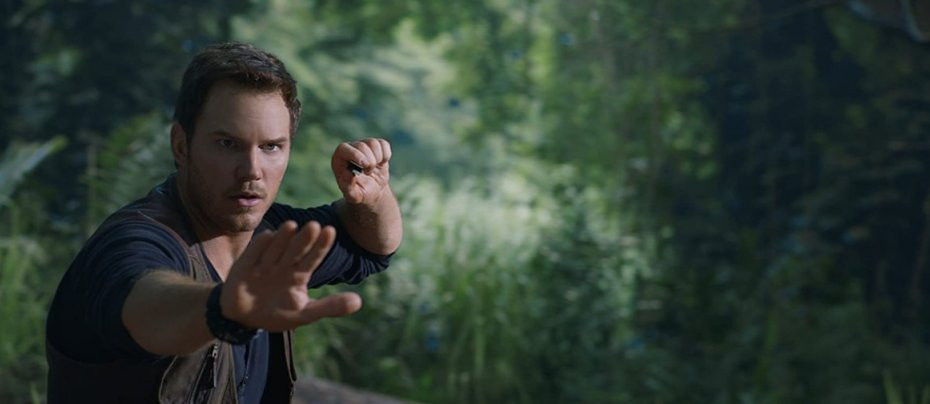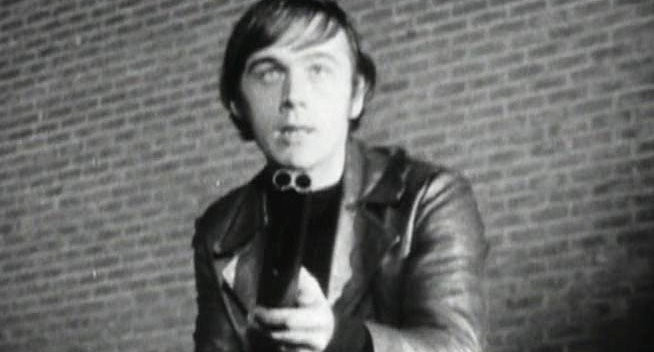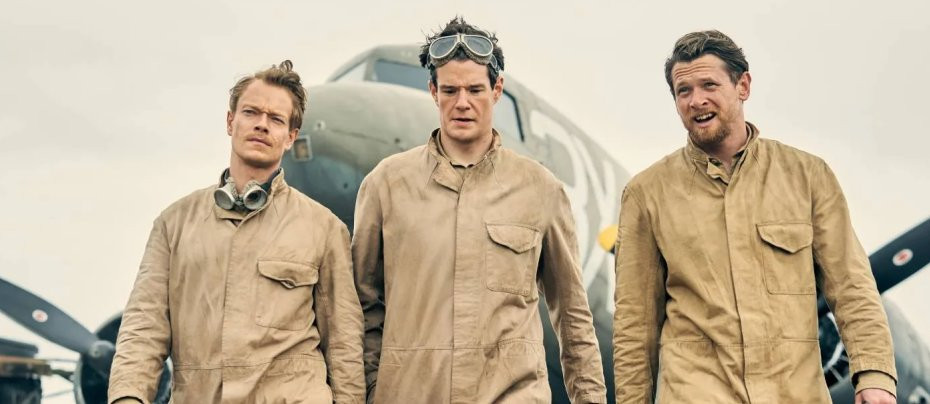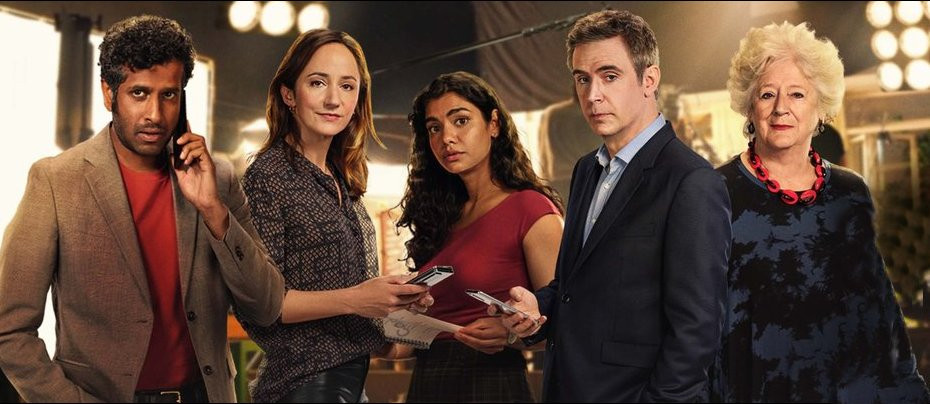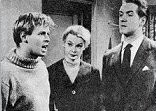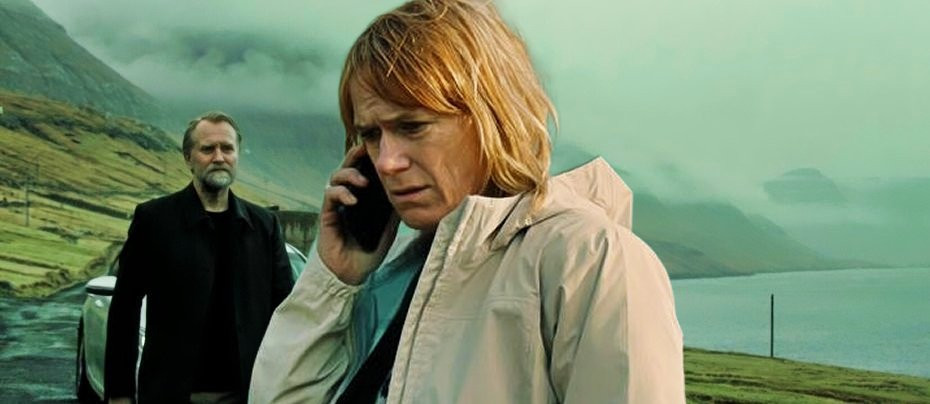
Trom
2022 - Faroe IslandsA final twist in a mystery can be very effective if, and only if, the ground is well prepared...
Trom is reviewed by John Winterson Richards
Much of the appeal of the "Nordic Noir" that exploded on to British television in 2011 with The Killing - or Forbrydelsen in the original Danish - was the glimpse into a slightly different culture that combined reassuring familiarity with a touch of exoticism. It was also fascinating to see how Denmark, a nation with about a tenth of the population of the United Kingdom, sustained an entertainment industry capable of turning out shows that were in every respect superior to most of the television drama being made in Britain at that point.
If it was impressive that seven million Danes included such a deep talent pool, it was positively shocking when Iceland, with a population of under 400,000, produced their own contribution to Nordic Noir, Trapped - perhaps not the most original of stories but a professionally produced and highly creditable entry in the genre.
Now it is the turn of the Faroe Islands, a Dependency of the Danish Crown with a population of under 60,000, or less than 1% of Denmark's, to show what they can do with Trom, which apparently means "cliff edge" in the Faroese language.
Of course, this is not their first appearance in Nordic Noir on television: they were there at the very start and played an important part in popularising the genre - Sarah Lund's jumpers, which were such a big talking point when The Killing was first shown and which became a fashion success in their own right, were Faroese.
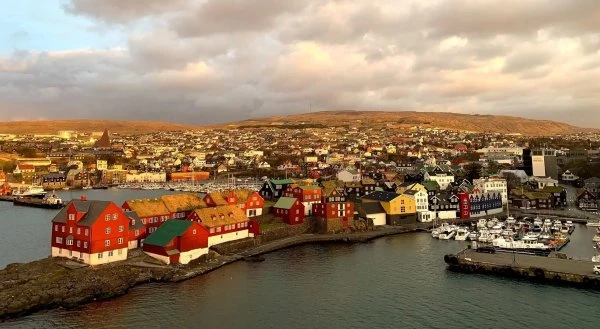
Geographically and historically, the Faroe Islands have much in common with Shetland and Orkney. Constitutionally, they have more in common with Jersey or the Isle of Man in that they are a self-governing nation rather than a local authority. They are independent for most practical purposes, with their own Prime Minister, but they owe allegiance to the Queen of Denmark and, as Trom emphasises, are reliant on Denmark for specialist services and support. While Denmark is a member of the European Union, the Faroe Islands are not.
Most importantly they have their own distinct language, which is spoken by about 70,000 globally, including the vast majority of people living in the Islands. The dialogue in Trom is therefore mainly in Faroese, with some conversations, mainly between Danish characters, in Danish and a few in English.
It has to be said that this limited the acting pool still further. The Faroese speaking population of the world is about the same as that of a middle sized industrial town in the UK and cannot sustain a strong cadre of professional actors. Most of the supporting players must therefore be literally amateurs and, without wishing to be unkind, sometimes it shows. There is a distinctively "am dram" feel to some performances. As it happens your reviewer is not fluent in Faroese, but, even allowing for that, the delivery of some of the lines is distinctly flat. One can also see inexperience in the way some supporting characters do not seem to know how to stand or react when someone else is speaking. They cannot rid themselves of their self-consciousness.
Given this difficulty, the producers were wise to bring in three very experienced professionals, two Danish and one Faroese active in Denmark, to play the three principals, and it is no surprise that they are by far the best players in the cast.
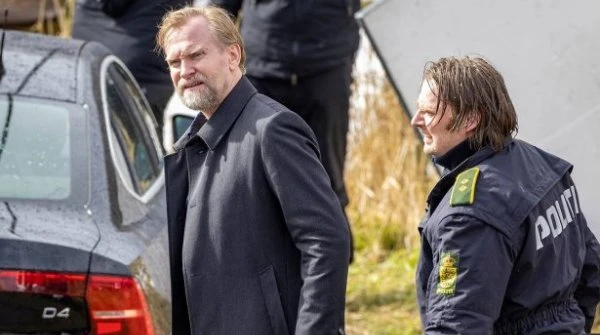
Ulrich Thomsen (Festen, Banshee, The New Pope) plays a radical investigative journalist in the Stieg Larsson tradition who was born in the Faroe Islands but left them to make a name for himself in the wider world. His past catches up with him in the form of an unexpected video message from an animal rights activist who is campaigning against whaling, which is still a traditional part of life in the Faroe Islands. Thomsen, an actor of great presence, gives a typically commanding performance and it is not his fault that his part is sidelined to a surprising extent.
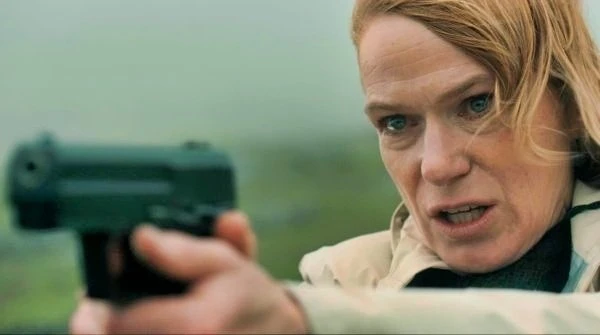
Maria Rich, another accomplished Dane, plays the Chief Investigator of the capital's Police whose comfortable world is endangered when a controversial case threatens to get too close to home. Olaf Johannessen, an actual Faroese actor whose face is familiar from Danish productions including Borgen, 1864, The Bridge, and, of course, The Killing gets to play an actual Faroese character. It is a fair bet that if someone in a recent television show is either religious or a successful businessman he will turn out to be a villain. Since Johannessen's character is both, some pretty obvious telegraphing is going on from the start.
Yet, although there is no shortage of cliches in Trom, the script deserves credit for going in at least some unexpected directions.
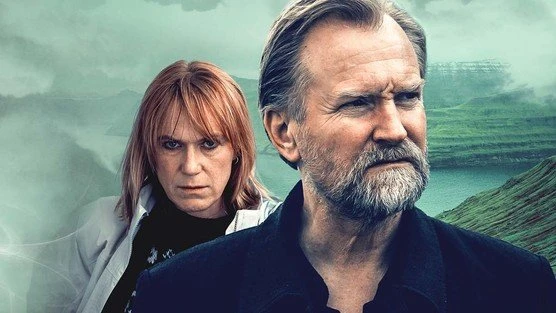
Our journalist is not the cool, intelligent outside observer who sees what prejudiced locals ignore. He loses control of his emotions and makes mistakes for which he is never properly held to account for some reason. Nor does he, after the usual period of wariness, establish mutual respect with our now obligatory strong woman Police Chief and team up with her to solve the case. He comes to the conclusion she is corrupt, and it has to be said he has good reason to make that assumption.
While she is in not in fact complicit in a conspiracy as he assumes, she may be the World's Worst Police Chief. She begins by practically ignoring a very serious complaint and then treats a subordinate badly who, taking his cue from her, assigns the matter a low priority. At one point she tampers with evidence to protect someone close to her. It is the one subordinate she treats as a friend, the down to earth Anita, played by Mariann Hansen, who has the common sense to put everything together.
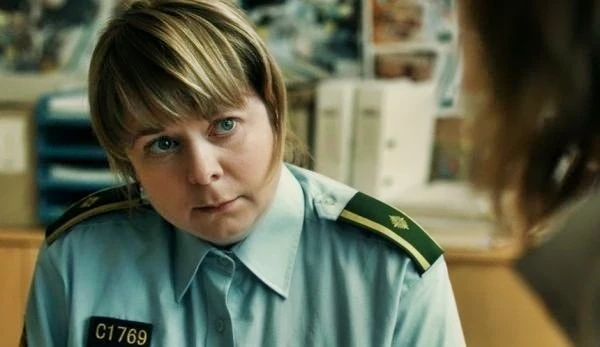
Nor is the resolution of the case as obvious as expected, even if this opens it up to the opposite criticism in that it is quite arbitrary. A final twist in a mystery can be very effective if, and only if, the ground is well prepared, so that the audience sees immediately what was in plain view all along but never noticed. It is irritating when completely new facts are introduced at the last moment and minor characters suddenly become very important simply to surprise.
The actual ending is rather unsatisfying, a rather contrived "cliffhanger" that seems to be intended to set up a second season. Whether there will ever be such a continuation seems uncertain at the time of writing at the end of 2022. The latest reports suggest that the writer has been working on scripts but the production has become the subject of rights disputes, or at least so the internet tells us.
There is definitely enough raw material for future seasons. Trom is based on a series of detective novels by Jogvan Isaksen, who seems to be a sort of one man Faroese publishing industry.
Quite apart from that, the television show itself leaves a lot of scope for developing the four main characters. Will the new case force our investigative journalist and our Police Chief to work together at last? Will either of them turn out to be good at their jobs? Will Anita solve everything for them? Will the villain ever do anything actually villainous?
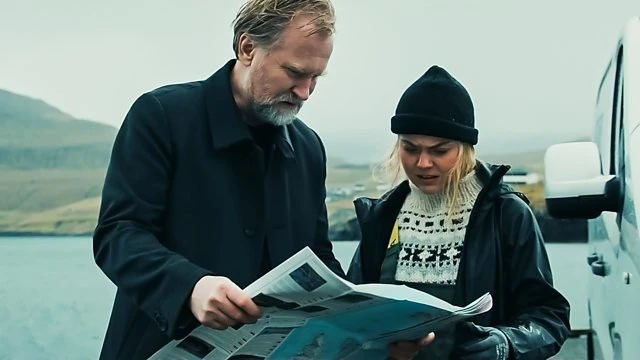
It might also be interesting to find out more about some of the lightly sketched supporting characters, such as the young activist played by Sissal Drews Hjaltalin. If anything, it is slightly disappointing that the whaling aspect of the plot is not really developed. It is, after all, the activity for which the Faroe Islands are best known. The producers doubtless calculated that undue emphasis on what most people in target markets abroad dislike would undermine sympathy for the characters and prejudice international sales. Yet they do deserve credit for allowing one of the Faroese characters - played by another genuine Faroese actor, Hans Torgard, who was also in the Icelandic Trapped - to express their point of view on the issue.
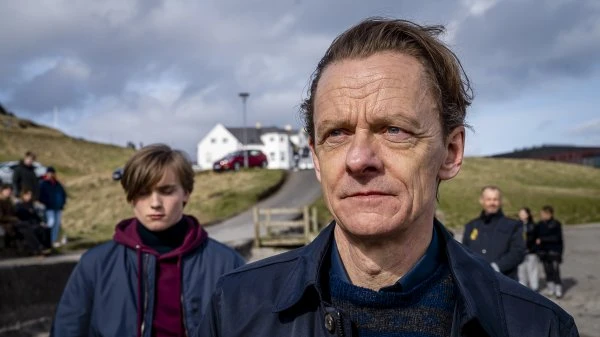
In general it is a missed opportunity that so much emphasis is put on a standard big business conspiracy plot when it would have been more interesting for most viewers to focus more on what is unique about Faroese culture. We see relatively few of the famous jumpers. However, we do get to find out a bit about the traditional Faroese waistcoat. Overall we are given a glimpse of the meeting of modern affluence and technology with a close knit, historically poor and self-reliant community, but only a glimpse.
The real star of the show is the scenery. This is not denigrating the cast in any way, because the landscapes are truly stunning - bleak, barren, and beautiful.
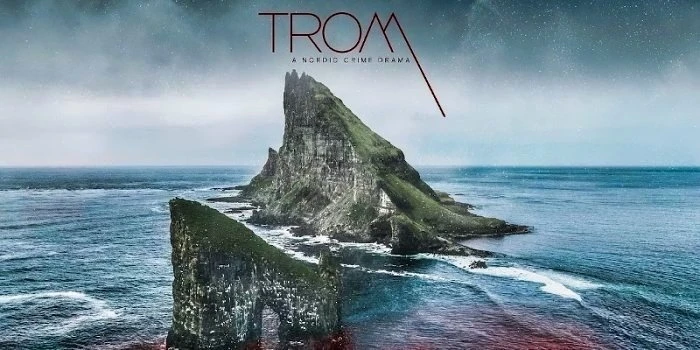
The cliff edges of the title are everywhere, but the harshness of the terrain is softened by the lush green of the grass thanks to the Gulf Stream. Human settlement seems to be mostly utilitarian and detracts a little from the aesthetic appeal, but some clever photography in the style of other Nordic Noir shows emphasises the modern. One can see a definite clash between this modernity and the old fashioned simplicity of the private houses. It is this visual contrast which perhaps should have been counterpointed more in the story. In the end, we are left wanting to know more, which could be taken as a sign of success or failure. At least Trom has done enough to make the prospect of a second season an intriguing possibility.
Seen this show? How do you rate it?
Seen this show? How do you rate it?
Published on January 3rd, 2023. Written by John Winterson Richards for Television Heaven.


